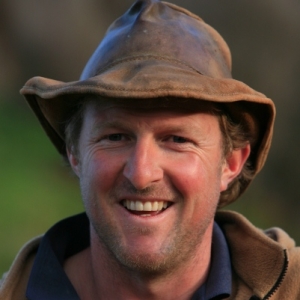In March he's fronting up to hundreds of dairying women at their annual conference in Nelson to explain why he believes farmers and conservationists need to work together to ensure we have productive and sustainable farms to live and work on in the future.
Dan is a typical kiwi bloke. He's a bushman, hunter, traveller, farmer, conservationist and business man. He's been on his OE. He's also used Kiwi ingenuity to think outside the square and create an award-winning eco-tourism business – Blue Duck Station.
Blue Duck is an outdoor enthusiast's playground located on the banks of the Whanganui and Retaruke rivers in the Ruapehu district. The Station is surrounded by Whanganui National park.
As well as offering accommodation, horse riding, kayaking, shooting and bush walking, the Station is a working sheep and beef farm. It also hosts one of the highest concentrations of whio (Blue Duck) and kiwi in New Zealand, and healthy populations of weta, native bats and fish.
To ensure wildlife on the Station continue to thrive, Dan works hard to ensure the habitat is continually improving through bush regeneration, enhanced water quality and trapping predators.
It's through these efforts that the Station has won three Ballance Farm Environment Awards and Dan has received a Services to Conservation award from the Department of Conversation.
When it comes to talking to dairy farmers about the environment, Steele says he's not daunted by the prospect because he is passionate about making sure New Zealand's natural beauty is safe guarded for the future.
And he's got some strong opinions when it comes to protecting New Zealand's clean, green image, which he's not afraid to share – even with an audience of grass-root dairy farmers who know what it is like to be under intense scrutiny when it comes to how they look after the land.
He believes dairy farmers care deeply about their land and their animals, but he says sometimes the industry and its practices are in conflict with "brand New Zealand".
"The dairy industry has been through a massive growth phase in the last 20 years, and unfortunately it hasn't always been done sustainably," said Dan.
"I don't have all the answers, but I know what makes me proud to be a New Zealander, which is at the heart of my work. I really enjoy talking to people about why the environment matters so much to us all as a nation, and how we can find common goals going forward to protect our precious natural resources."
The Dairy Women's Network conference kicks off in Nelson on March 20 and 21, with a world-class line-up of speakers covering subjects as diverse as animal behaviour, environmental constraints and developing future leaders. The conference theme is 'Taking down the boundary fences'.
A sampling of other speakers include Olympian Mahe Drysdale; Jo Goodhew, Associate Minister for Primary Industries and Minister of Women's Affairs; Hinerangi Edwards, Trustee Parininihi Ki Waitotara (PKW ) Farms Limited; and the international queen of time management, Robyn Pearce.
The Dairy Women's Network also announced that early bird registrations, which close on February 28, go in the draw to win a package for two to walk the breath-taking Humpridge Track in Southland.
To learn more about the Dairy Women's Network conference visit: www.dwn.co.nz or phone 0800 396 748.


















